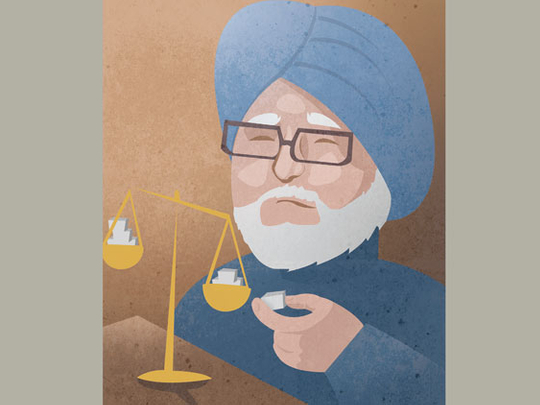
‘Things fall apart; the centre cannot hold. Mere anarchy is loosed upon the world.’
These immortal words by Y.B. Yeats come to mind as we witness the storm unleashed by Mamata Banerjee, the Chief Minister of West Bengal, against the Congress party for its decision to increase diesel prices and jump-start the reform process. Her tirade against the ruling dispensation that has treated her like an errant child thus far has created a stir that India has not seen in recent times. All hell has broken loose, things are indeed falling apart with the allies and foes of the Congress party out to drive it out of power. The country is suddenly looking at early elections.
These events have dramatically centre-staged India’s ideas of federalism and put under intense scrutiny the notion of a strong centre that bestows power upon the states. For much of independent India’s history, it has always been Delhi that dictated policy and strategic formulations and the states followed suit. Undoubtedly, this tradition has been under threat. Mamata has simply upped the ante’ since she came to power. She has even waded into foreign policy in recent times — remember the Teesta Barrage accord with Bangladesh which she aborted.
Just as the din of her outburst was dying, out comes news of almost every single regional party making fresh demands: ‘Give in to our claims or else we will bring you down’. The Chief Minister of Bihar has very brazenly announced that any party that confers special status to his state can have the support of his 20 members of parliament at the centre; a quid pro quo should there be a confidence vote in the Lower House.
This is mere anarchy loosened upon the body polity of India! How can a nation of 1.2 billion people go about governing itself in this dysfunctional manner? The issues at hand are serious, deadly serious. If the country does not attend to the looming fiscal deficit on account of repeated subsidy of diesel prices, the rating agencies will downgrade its debt, which in turn will increase the costs of borrowing, bringing in its wake further inflation. If the investment climate is not bettered, foreign direct investment (FDI) inflows will dry up. When Mamata rants about the poor, she forgets that if the country listens to her and there is a rollback on diesel prices, the very poor she is championing will be hardest hit in the long run.
But where does all this leave the Congress? It has not exactly covered itself in glory. There couldn’t have been a worse time to launch this slew of reforms; without building a strong consensus to back its agenda, it was foolhardy and ill conceived to have announced them. It has painted itself into a corner. Not one single party other than the Congress is backing these steps and even within its own party there are rumblings. For a radical and transformative programme to revitalise the India story, the rollout was poorly executed.
The media makes much of the Prime Minister Manmohan Singh’s nuclear moment, when he did a Houdini act in getting that deal with the US thrashed out. There are expectations that he and his party will be able to buy out the opposition yet again. But there are significant differences this time around. Diesel prices and cooking gas have direct impact on the common man unlike strategic issues like nuclear bomb making. Then all those intense debates seemed too abstract and distant to the aam janta [common man] but not so now. More importantly, each of the smaller parties is intensely concerned about the fallout of supporting these unpopular decisions should early elections be called. Indeed this is the twist in the drama this time around which makes any comparison with the prime minister’s nuclear moment totally absurd.
The Samajvadi Party (SP) which bailed out the Congress in the nuclear deal may indeed be keen this time around that early elections are called and have a vested interest in letting the Congress twist in the wind. Similarly, Mamata’s Trinamool Congress (TMC) may have deliberately decided to pull the rug from under the Congress because it too wants an early election — all its high-flaunting principles simply a cover to force early polls.
Both parties fancy their chances if elections are held ahead of time. Both won resounding victories in the state elections not too long ago and think they can translate the success in the state elections to the parliamentary polls. Mamata has aspirations beyond Bengal and sees herself as the new Left.
If these petty calculations are at the heart of this opposition to restructure India’s economy, then Indians should brace themselves for grim tidings. Federalism that leads to a weak and fragile centre forever, at the mercy of the provinces or state governments, is a prescription for disaster. The founding fathers did not envision such a structure when they wrote the constitution.
Ravi Menon is a Dubai-based writer working on a series of essays on India and on a public service initiative called India Talks.










